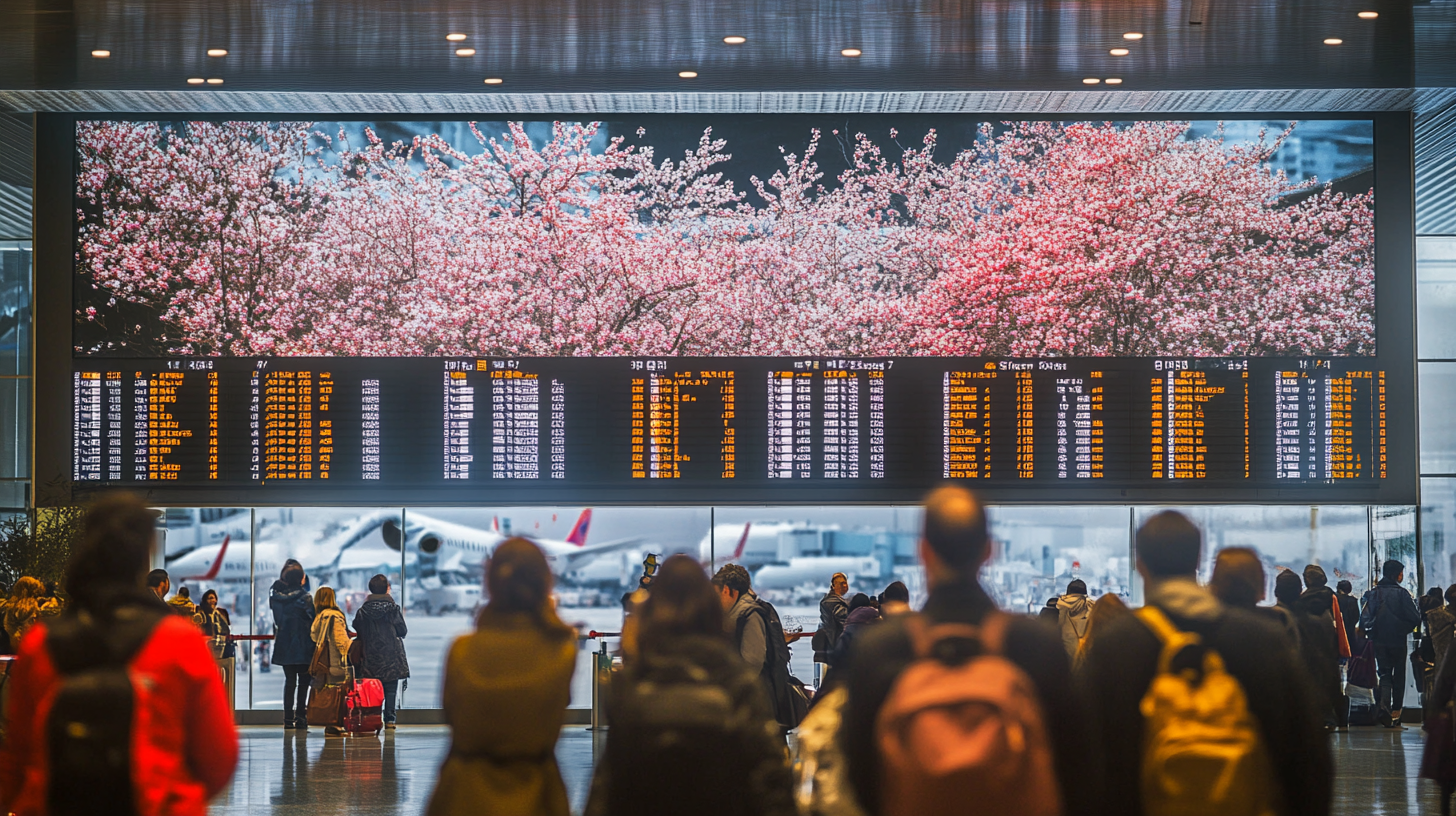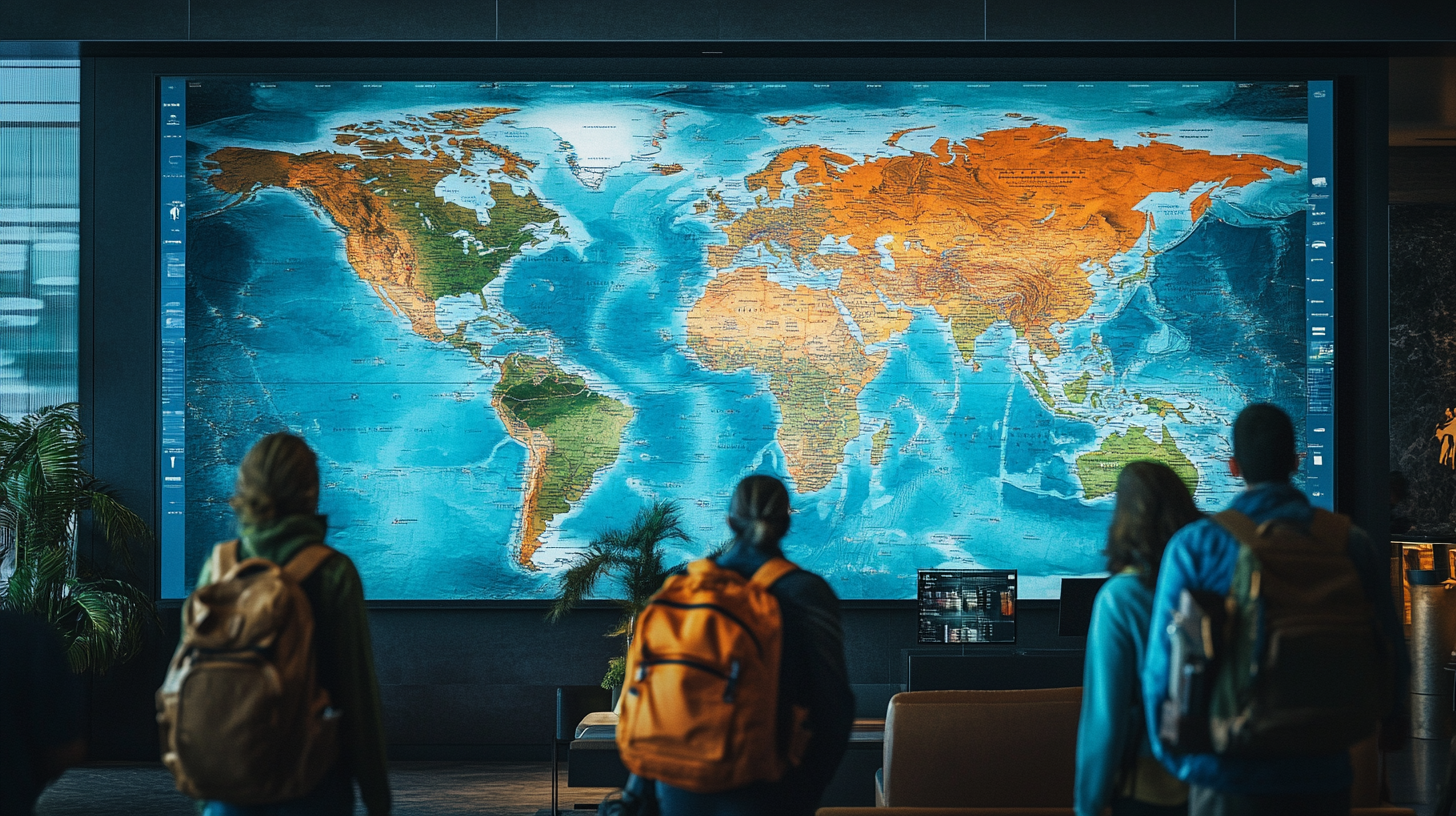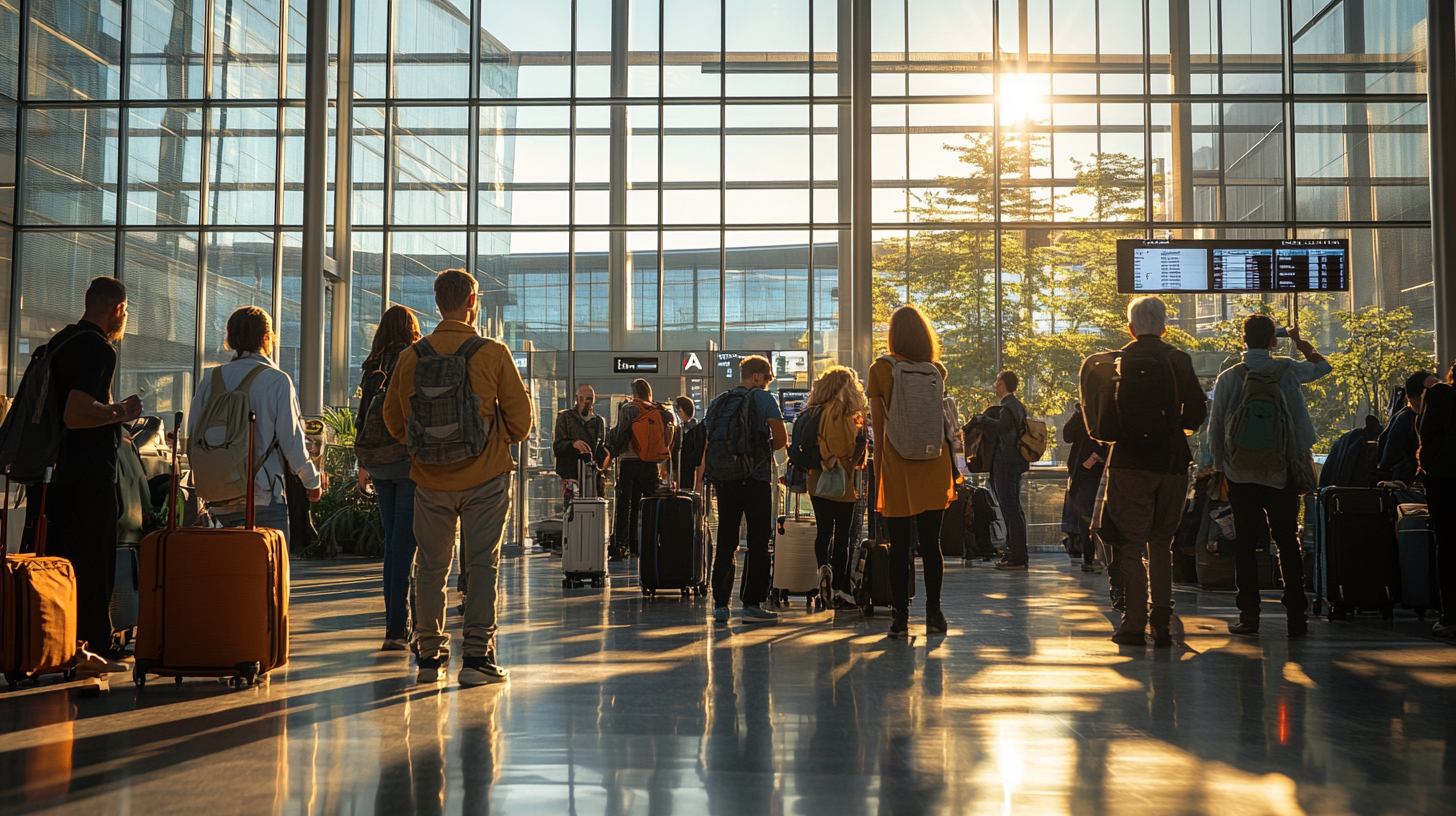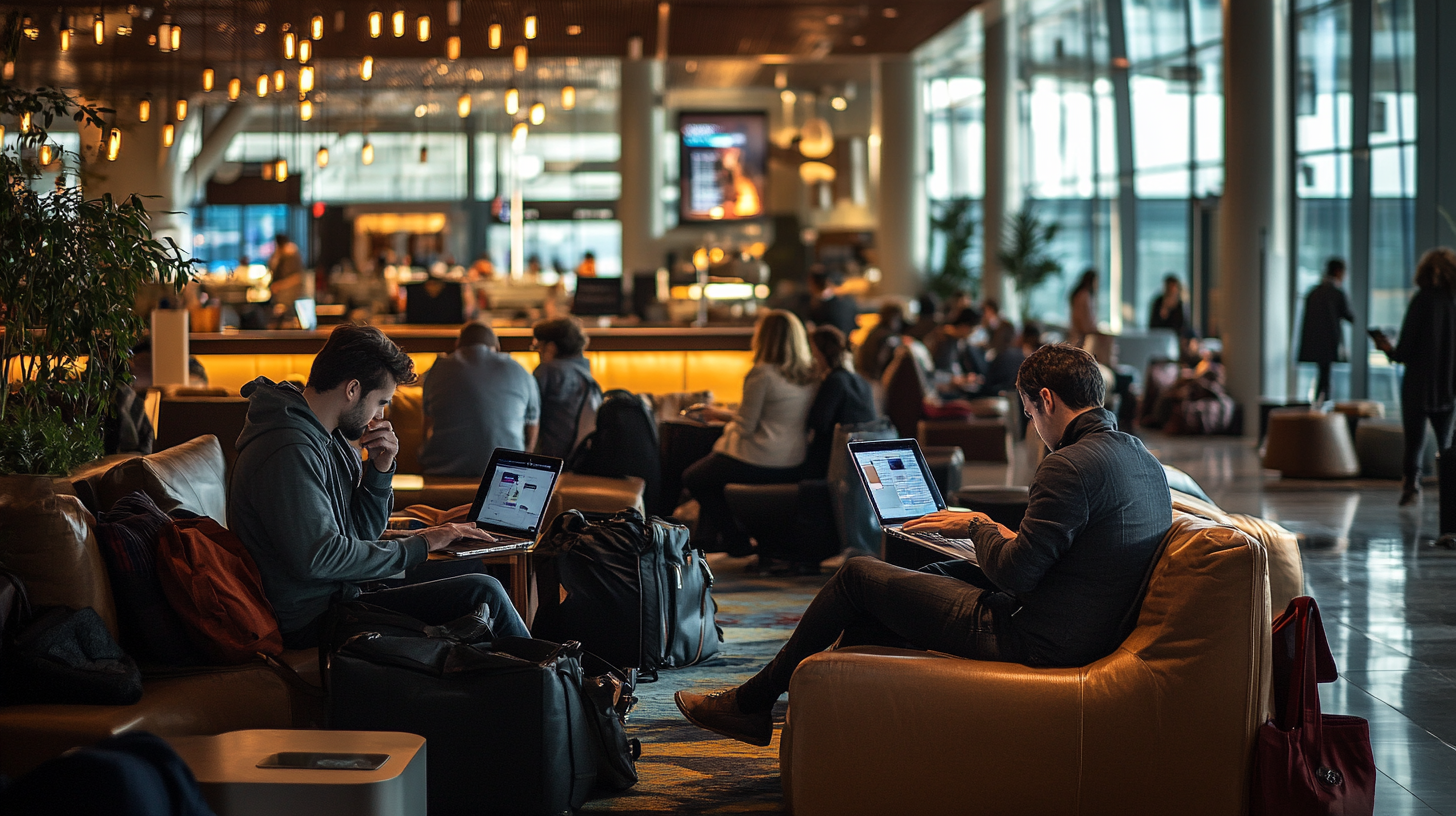Best Time to Buy International Flights: A Comprehensive Guide

Booking international flights can be a daunting task, especially with fluctuating prices, ever-changing airline policies, and the sheer abundance of options available. Many travelers find themselves wondering whether they are getting the best deal or if waiting a little longer might save them hundreds of dollars. Knowing when to purchase your tickets can save you not just money, but also valuable time and significant stress. Imagine planning a dream vacation to Paris only to discover that a friend booked the same flight for half the price just weeks apart. This guide aims to prevent such scenarios.
This comprehensive guide explores the best strategies for purchasing international flights, combining expert insights, data-driven research, and practical tips to help you make informed decisions. Whether you’re a seasoned traveler or planning your first international trip, understanding the nuances of booking flights can vastly improve your travel experience. From debunking common myths to leveraging technology, we’ve gathered everything you need to navigate the complex world of international airfare. For those seeking more in-depth strategies, consider consulting the definitive resource on timing your flight purchases for maximum savings .
Understanding the Myth: Is There a Best Day to Book?

For years, travelers have clung to the belief that booking flights on certain days of the week yields the best deals. Traditionally, Tuesdays were considered the prime day for snagging cheaper fares. This notion likely originated from the historical practice of airlines releasing weekly sales late on Mondays, making their competitors match prices by Tuesday morning. Travelers worldwide adjusted their booking habits accordingly, setting reminders to scour airline websites every Tuesday. However, recent studies challenge this long-held belief and suggest that the dynamics of airfare pricing have evolved significantly.
A 2023 Expedia study suggests that Sunday may now be the optimal day to book flights, potentially offering up to 5% savings on domestic flights and 10% on international ones. Conversely, a 2022 Google study indicates there’s little difference in flight prices between weekdays, emphasizing that price fluctuations are more closely tied to other factors like demand and seat availability rather than the specific day of the week. Given these conflicting findings, it’s clear that focusing solely on the day of the week may not be the most effective strategy. Instead, it’s essential to consider a broader range of factors influencing airfare prices, a concept explored further in the comprehensive analysis of flight pricing dynamics and strategies .
Optimal Booking Windows for International Flights

Timing is crucial when it comes to purchasing international airfare. Prices tend to fluctuate based on how far in advance you book your flight, influenced by factors such as demand, competition, and seat availability. Understanding these patterns can help you secure the best possible fares. Here’s what the research suggests:
General Guidelines

- Book 2-8 Months in Advance: This window is generally considered optimal for international flights. Booking within this period allows you to take advantage of lower prices before they increase as the departure date nears. For instance, travelers planning a summer vacation in Europe might find better deals when booking in the early months of the year rather than waiting until the last minute.
- 60 Days Before Departure: According to travel expert Stefanie Waldek, booking international flights around 60 days before departure can yield significant savings. This recommendation is based on observed trends where airlines might lower prices to fill remaining seats. However, this strategy requires a balance between waiting for potential price drops and risking increased fares if demand surges.
- Avoid Booking Too Early or Too Late: Prices are often highest when flights are first released and again as the departure date approaches. Airlines initially set higher prices when they release flights 11-12 months in advance, catering to business travelers and those with specific scheduling needs. Conversely, last-minute bookings can be costly due to limited seat availability. Booking within the recommended windows can help you avoid these price spikes and find a sweet spot for affordable fares. For more detailed insights on timing your purchases, refer to the expert guide on strategic flight booking timelines .
Regional Booking Trends

Different destinations have varying optimal booking times due to seasonal trends, local holidays, and regional factors. Understanding these nuances can significantly impact your airfare costs:
- Asia and the South Pacific: Flights to destinations like Japan, Australia, and New Zealand are cheapest when booked 8-10 months in advance. This extended window accounts for the high demand during popular travel periods, such as cherry blossom season in Japan or summer holidays in Australia. January and April are particularly budget-friendly months due to lower tourist activity after the New Year and before peak seasons. Savvy travelers planning trips to this region often take advantage of early booking to secure substantial savings.
- Europe: The best time to book flights to Europe is during the fall shoulder season, typically from September to November, when tourist crowds thin out, and the weather remains pleasant. Booking 6-8 months ahead for peak seasons, like summer, can save you 20-30%. This is because airlines anticipate high demand and adjust prices accordingly. For example, travelers aiming for a summer getaway in Italy might start searching for flights in December or January to lock in lower fares. Additional strategies for saving on European travel can be found in the in-depth analysis of seasonal airfare trends in Europe .
- Africa: Early booking is recommended for African destinations due to limited flight options and smaller airlines operating routes. However, spring may offer more flexibility for closer booking, especially to North African countries where tourism peaks during specific times of the year. Understanding the local festivals and events can also help in timing your purchase to avoid price surges.
The Impact of Travel Seasons

Seasonality plays a significant role in flight pricing and overall travel costs. Airlines adjust their fares based on demand, which fluctuates throughout the year. Understanding the peak and off-peak seasons for your destination can help you decide when to book and travel:
- Peak Seasons: Demand is higher during summer months and major holidays like Thanksgiving, Christmas, and New Year’s Eve. Families and vacationers take advantage of school breaks and holidays, leading to increased prices due to heightened demand. For instance, flights to popular destinations like Hawaii or the Caribbean can be significantly more expensive during these times. Booking 90-120 days in advance is advisable to secure better rates and ensure availability. It’s also crucial to be mindful of regional holidays and events that might affect travel costs, as detailed in the seasonal travel planning guide for cost-effective trips .
- Off-Peak Travel: Traveling during off-peak times can save you up to 50% on flights and accommodations. For example, North America is cheapest from January to March, a period following the holiday rush when fewer people are traveling due to colder weather and the resumption of work and school schedules. Similarly, South America offers better deals from April onwards, after the peak summer season in the Southern Hemisphere concludes. Travelers willing to embrace less traditional travel times can reap significant financial benefits.
- Shoulder Seasons: These are periods between peak and off-peak seasons, offering moderate prices and fewer crowds. For example, fall in Europe (September to November) provides pleasant weather for sightseeing without the throngs of summer tourists. Airlines may offer promotional fares to entice travelers during these times, making it an opportune moment to explore destinations at a reduced cost while still enjoying favorable conditions.
Flexibility: Your Greatest Asset

Being flexible with your travel plans is one of the most effective strategies to secure lower airfare and enhance your overall travel experience. Flexibility can manifest in various ways, from choosing different travel dates to considering alternative airports or destinations.
Flexible Dates and Destinations

- Midweek Travel: Flying on Tuesdays or Wednesdays can save you up to $350 compared to peak days like Fridays and Sundays. Midweek flights are often less crowded, and airlines reduce prices to fill seats. For example, a traveler booking a flight from New York to London might find significantly lower fares on a Wednesday departure compared to a Friday. Utilizing fare comparison tools that allow you to view prices across a range of dates can help identify the most cost-effective options.
- Holiday Travel: Surprisingly, flying on the day of a holiday, such as Thanksgiving Day or Christmas Day, can be cheaper due to lower demand. While many prefer to arrive before the holiday, those willing to travel on the holiday itself can benefit from reduced fares and less crowded airports. This strategy requires balancing travel plans with personal or family commitments but can result in substantial savings.
- Avoiding Peak Months: Steering clear of August and December, when fares are highest due to summer vacations and holiday travel, can reduce costs. Instead, consider planning trips during less busy months. For instance, visiting popular destinations like Japan during early spring or late autumn provides a rewarding experience without the inflated prices and crowds of peak seasons. Detailed suggestions on alternative travel periods can be found in the guide to cost-saving travel by avoiding peak seasons .
Utilizing Flexible Fare Options

Selecting flexible or changeable fares allows you to adjust your booking if prices drop or if your travel plans change. While these fares might be slightly more expensive upfront compared to basic economy tickets, they offer significant benefits. Airlines often provide vouchers or credits rather than refunds, but this can still contribute to overall savings, especially if you travel frequently. Additionally, some airlines have introduced more passenger-friendly policies, offering free changes or cancellations within certain time frames. It’s advisable to read the fare rules carefully and consider purchasing travel insurance for added protection against unforeseen circumstances.
Leveraging Technology and Tools

In the digital age, a wealth of technology and tools are available to assist travelers in finding the best deals and tracking price changes. These resources can simplify the search process and provide valuable insights into airfare trends:
- Price Alerts: Setting up price alerts on platforms like Google Flights, Kayak, or Capital One Travel allows you to monitor fare fluctuations for your desired routes. Once you input your travel details, these platforms notify you via email or app notifications when prices drop or reach a specified threshold. For instance, if you’re planning a trip to Tokyo, you can set an alert to track flights from your home airport and receive updates when prices are favorable. Utilizing these tools can help you make timely decisions and capitalize on sudden discounts. Further guidance on setting up effective alerts is available in the step-by-step guide to airfare price tracking .
- Flight Comparison Sites: Using flight comparison websites like Skyscanner, Momondo, and Hopper enables you to compare prices across multiple airlines and third-party booking sites. These platforms aggregate data to present you with various options, highlighting the cheapest, fastest, or best value flights. Additionally, some sites offer predictive insights, suggesting whether prices are likely to rise or fall in the near future based on historical data.
- Booking Times: While some experts suggest booking flights between 2-4 PM EST on Tuesdays and Wednesdays for potential deals, it’s important to note that airfare pricing algorithms are complex and continuously changing. Nevertheless, monitoring prices during these times may sometimes reveal discrepancies or limited-time promotions. Staying informed through airline newsletters or following them on social media can also alert you to flash sales or special offers.
Maximizing Rewards and Promotions

Maximizing the use of airline promotions and reward programs can significantly reduce your travel expenses. By strategically leveraging these opportunities, you can enhance your savings and even enjoy added perks during your journey:
- Airline Promotions: Airlines frequently run special deals and limited-time offers, such as discounted fares, bonus miles, or package deals that include accommodations or car rentals. Subscribing to airline newsletters, following their social media accounts, and regularly checking their websites can keep you informed about these promotions. For example, during off-peak seasons or to celebrate anniversaries, airlines may offer substantial discounts on international routes. Being proactive and ready to book when these deals arise can lead to significant savings.
- Travel Credit Cards: Utilizing travel credit cards that offer rewards, points, or cashback on flight purchases can enhance your savings. Cards like the Chase Sapphire Preferred or the Capital One Venture reward you for spending on travel, allowing you to accumulate points redeemable for flights, upgrades, or other travel-related expenses. Some cards also offer sign-up bonuses, lounge access, or travel insurance benefits. Managing your card responsibly and aligning your spending with reward structures can maximize these benefits. For more information on selecting the right card, refer to the comprehensive review of top travel rewards credit cards .
- Cancellation Policies: Many airlines offer a 24-hour cancellation window, allowing you to cancel or change flights without penalties. This policy provides flexibility to take advantage of better deals if they arise shortly after booking. It’s essential to familiarize yourself with each airline’s specific policies, as they can vary. Additionally, some airlines have introduced more flexible cancellation and change policies in response to global events, providing travelers with increased confidence when booking in advance.
Group Travel vs. Solo Adventures

Your booking strategy may vary significantly depending on whether you’re traveling alone or with a group. Each scenario presents unique advantages and challenges in securing the best airfare deals:
- Group Travel: When traveling with family, friends, or a larger group, booking early is essential to ensure all members can be accommodated on the same flight and sit together. Airlines have limited seating capacity, and securing multiple seats becomes more challenging as the departure date approaches. Early booking not only guarantees availability but may also qualify the group for potential discounts. Some airlines offer group rates or special arrangements for parties of a certain size. Communicating your needs directly with the airline or a travel agent can facilitate this process and may result in added benefits like group seating or baggage allowances.
- Solo Travel: Solo travelers have the advantage of flexibility and can often capitalize on last-minute deals. Airlines seeking to fill the last remaining seats may offer reduced fares, which are more readily available to individuals than to groups. If you’re comfortable with spontaneous travel plans and can adjust your itinerary on short notice, monitoring for these deals can be rewarding. Additionally, solo travelers might consider alternative routes or layovers that may not be practical for larger groups, further expanding their options for cost savings. For strategies tailored to individual travelers, refer to the solo traveler’s guide to finding the best flight deals .
Expert Insights

Travel experts and seasoned travelers offer valuable advice based on experience and in-depth knowledge of the industry. Their perspectives can provide practical guidance and help you navigate the complexities of booking international flights:
- NerdWallet’s Perspective: The financial advice platform suggests booking when prices feel right rather than fixating on specific days. They emphasize that while timing can influence prices, factors such as airline competition, seasonal demand, and booking windows have a more significant impact. NerdWallet recommends setting a budget for your flight and booking when you find a fare that meets your criteria, rather than waiting for a hypothetical “best day” that may not materialize. They also highlight the importance of being informed about fare trends on your specific route.
- Forbes Advisor’s Take: Forbes Advisor emphasizes flexibility and utilizing tools like Google Flights to find the best deals. They note that airlines offer the best prices when they need to fill seats, which is not necessarily tied to specific days of the week. By being open to different travel dates, times, and even alternative airports, travelers can uncover significant savings. Forbes also suggests considering budget airlines and being aware of additional fees to ensure you’re comparing total costs accurately.
- Mika from Savings Grove: Mika, a personal finance enthusiast from Savings Grove, recommends booking flights 6-8 months ahead for peak seasons to secure better deals. She shares strategies to make, save, and spend money wisely, emphasizing the value of planning and budgeting for travel. Mika advises travelers to monitor fare trends, use rewards programs, and consider less conventional routes that might offer cost advantages. Her approach combines financial prudence with a passion for exploring the world without overspending.
Final Tips for Booking International Flights

To summarize, here are key strategies to optimize your international flight booking and ensure a smooth planning process:
- Plan Ahead: Aim to book your flights several months in advance, especially during peak seasons. Early planning not only helps in securing better prices but also provides a wider selection of flights and seating options. Creating a travel timeline can assist in organizing all aspects of your trip efficiently.
- Be Flexible: Adjust your travel dates and consider alternative destinations to take advantage of lower fares. Flexibility can open up unexpected opportunities, such as discovering a new destination or experiencing a unique cultural event. Keep an open mind and explore various options to maximize your travel experience while staying within budget.
- Utilize Tools: Leverage technology to monitor prices and receive alerts on fare changes. Making use of multiple platforms and apps can provide a comprehensive view of the market, helping you to identify the best deals. Remember to check the features and benefits of each tool to match your specific needs.
- Understand Seasonal Trends: Be aware of peak and off-peak seasons for your destination to find the best prices. Researching the local climate, events, and holidays can help you choose the most suitable time to travel. This knowledge allows you to avoid overcrowded periods and inflated prices, enhancing both your savings and travel experience.
- Monitor Airline Policies: Stay informed about cancellation and change policies to maintain flexibility after booking. Understanding these policies can protect you from unexpected fees and provide peace of mind in case your plans change. Consider purchasing travel insurance if you require additional coverage for your trip.
Final Thoughts

While there’s no one-size-fits-all answer to the best time to buy international flights, understanding the multitude of factors that influence pricing can empower you to make smarter booking decisions. Airline pricing strategies are complex, affected by variables such as demand, competition, seasonality, and even global events. By planning ahead, staying flexible, and leveraging available tools and expert insights, you can navigate this complexity with confidence.
Remember, the key to finding the best deals lies in being informed and proactive. Continuously monitor fare trends, consider alternative options, and don’t hesitate to act when a favorable price presents itself. Travel is an enriching experience, and with thoughtful preparation, you can make it both enjoyable and affordable.
Follow us back to Seat 5A for more travel tips and insights. May your journeys be filled with adventure and discovery. Happy flying!






